If you have guinea pig pets, it’s reasonable to worry about their needs. You will want to know what you need to do to keep them hydrated. Guinea pigs must have constant access to water, but is tap water acceptable?
Can guinea pigs drink tap water? Depending on the place where you live, guinea pigs can also drink tap water. If tap water is safe to drink for people, it is usually safe for guinea pigs as well.
Before we delve deeper into this topic, let’s see why is water necessary for guinea pigs and what kind of water those animals should consume.
Table of Content
Why Must Guinea Pigs Drink Water?
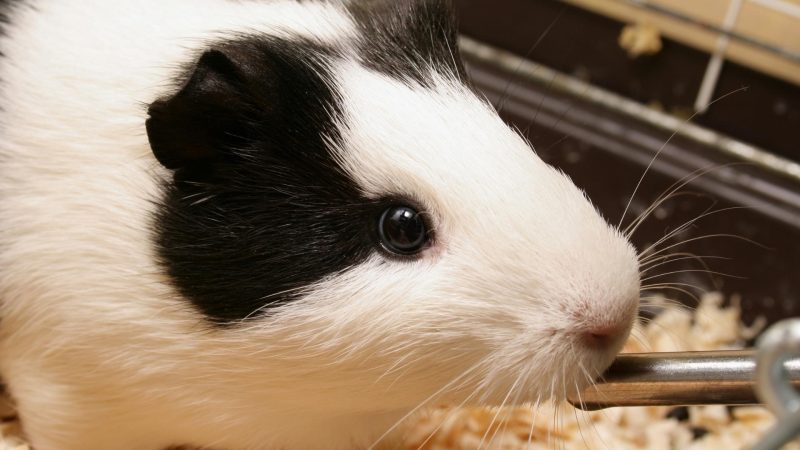
Any living being is dead without water, making it critical not only for your guinea pig but also for you. People should drink around 1 liter of water per 25 kg of body weight, and guinea pigs should also have a proper water intake. If we examine our bodies and bodies of animals, they are made around 70% to 80% of water.
This water in the body needs to be replenished as it’s used by the body for crucial processes inside. Water can also be eliminated due to breathing and during physical activity. Not only that, but guinea pigs, as well as humans, need water for more important reasons.
The main reason is that water is the main component in regulating body temperature and keeping it at normal values.
According to some researchers, water is also used to lubricate and cushion joints which serves as additional protection for them. Furthermore, it protects the spinal cord and lets the body get rid of excessive waste. Those are very important functions for your guinea pigs, meaning that your pig needs to have access to clean water during any time of the day and night.
Symptoms of Dehydration in Guinea Pigs
Any animal that is dehydrated is at risk. Furthermore, they will be weakened, making it impossible for them to obtain the water they require on their own.
Your guinea pig is likely dehydrated if any of the following signs appear:
- Eyes that are crusty
- Saliva that is thick and sticky
- Urine with a dark color
- Pellets of hard feces
- Lethargy
- Weak to move
How Much Water Should Guinea Pigs Drink?
While a guinea pig can’t drink like 5 or 6 Liters of water per day, it can drink a lot of water, when its weight is taken into an account. The average amount of water is 100 mL/kg per day. A typical guinea pig weighs around 0.7 kg to 1.2 kg. Thus, its maximum intake amount of water per day is 120 mL. Roughly put, this amount equals about half of your typical glass or a cup.
But, various changes in the environment can cause a guinea pig to drink either more or less water. If the environment is humid, the chances are that the need for water will be increased. If it’s hot inside, the same rule applies. Not only that, but various activity levels can drastically alter the amount of water they drinks. If they only consume less water, they can be dehydrated, which has a negative effect on them.
If the pig was active during the day, it might even drink more than the maximum amount we mentioned. Finally, health issues may also affect the need for water.
It’s important to mention that if your pig drinks an excessive amount of water or simply refuses to drink water, it’s a case for a veterinarian. While drinking too much water is almost always a sign of a problem, not drinking water at all could lead to death. Thankfully, it’s easy to monitor changes in water-drinking patterns, making it easy to detect problems, if there are any.
What Kind of Water Guinea Pigs Should Drink?
If you thought that water is water, you’re dead wrong. There are many types of water, and some are less suitable for your guinea pig. There is a simple rule that says that your guinea pig should drink the same water as you do.
So, if you’re drinking tap water, your piggie should, too. Tap water is completely safe for guinea pigs if it’s safe for humans. If you notice that your tap water is making you feel ill, you shouldn’t give it to your animal.
As for the other types of water, they are also safe for your guinea pig. You can even introduce bottled water, as this type of water usually contains minerals and vitamins needed for your guinea pig. Alternatively, you can always pour some water into your pot and cook it until it boils. This will help purify water, and since guinea pigs drink small portions of water, it should be fast to boil.
Alkaline water is also safe for your guinea pig if it doesn’t suffer from health issues. However, they prefer clean water with nothing exceptional added to it.
Supplements and Water
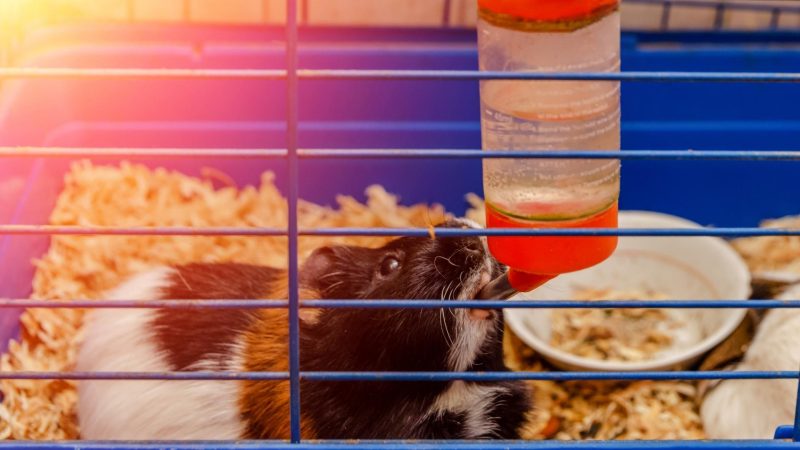
Some supplements can be easily dissolved in water, making them, at least in theory, great for guinea pigs. This is an easy way of getting a bit more vitamins and minerals, but it’s not a good way. If you have two or more pigs, you’ll need to dissolve a couple of portions, as these portions are usually meant for one pig.
Not only that, but this supplement can also completely change the taste of water, making your pigs not so eager to drink it. And if your guinea pig doesn’t drink enough water, health problems may occur.
Finally, if you plan on getting the supplements and splitting them to your pigs, it’s not going to work like that. Not every guinea pig drinks the same amount of water, so it’s not guaranteed that every pig will get the same (recommended) amount of vitamins. It’s better to get those nutrients directly from food and water should be there as it is clean, without any additions.
Water From Food
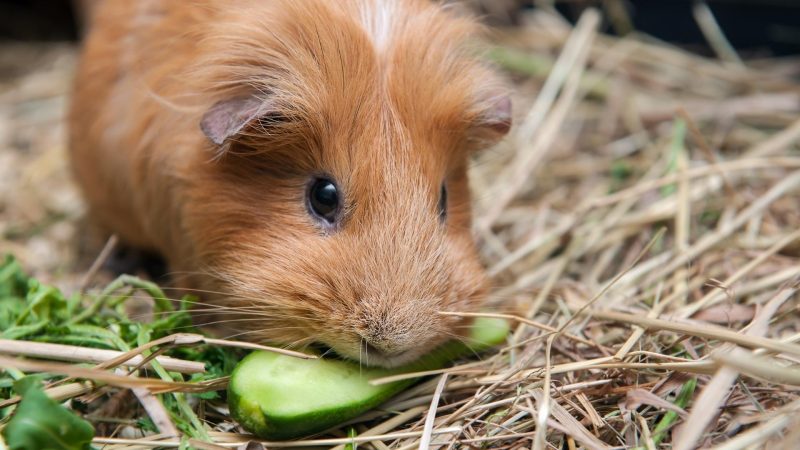
Aside from tap water or any kind of water you prefer, guinea pigs can get water from food. Most of the vegetables have water, especially cucumber, cabbage, or any other green vegetable out there. This doesn’t mean that you should always give your pig such vegetables.
The nutrition should always be varied and as healthy as possible. In this regard, you can introduce various dry food or food mixes if you don’t always have the vegetables. But, vegetables are a much healthier option for your guinea pig.
Most of the food that they eat should contain a lot of water. This water will not only help them feel more saturated after the meal but also help them cope with extreme weather conditions if there are some.
Should the Guinea Pig Drink Hot or Cold Water?
Guinea pigs like a bit colder water. For the most part, room temperature is great, and you don’t need to make it exceptionally colder. The interesting thing is that no guinea pig is the same. Some can even drink a bit hotter water, while some pigs refuse to drink water if it isn’t really cold. This could be remedied by adding an ice cube during warm weather, especially in the summertime.
When the winter comes, water should also be the same as your room temperature. Excessive warming isn’t recommended since they generally dislike very hot water. After all, your guinea pig shouldn’t be exposed to extreme weather temperatures, whether it’s summer or winter.
What Kind of Drinks Should Your Guinea Pig Avoid?
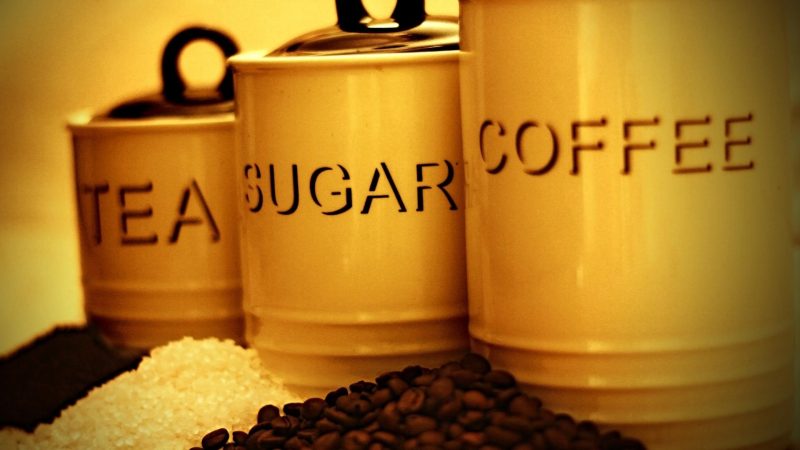
As we mentioned earlier, the best drink for your guinea pig is no other than water. Unfortunately, this means that they should only consume water, with no other drinks in their diet. Drinks with an excessive amount of sugar, salt, or fat are extremely unhealthy for them.
Next time you think about giving your pig some juice or soda, think about how bad it can be for it and please, don’t do that. Caffeinated drinks are also dangerous for your guinea pig. These drinks can sometimes include sugar, and on top of that, caffeine isn’t really going to have a good effect on them.
Thus, tea, coffee, cocoa, and any kind of alcoholic drink are strictly forbidden. Some studies also say that xylitol, an artificial sweetener, can also evoke serious health problems in guinea pigs. It’s also on the APCC list of foods that every pet should avoid.
How Do You Give a Guinea Pig Water?
You may supply water to your guinea pig using a variety of different techniques. In any case, they must drink at least 100 mL of fresh water every day.
The following are some ways you may use and determine which is effective to apply:
Drinking Bottle
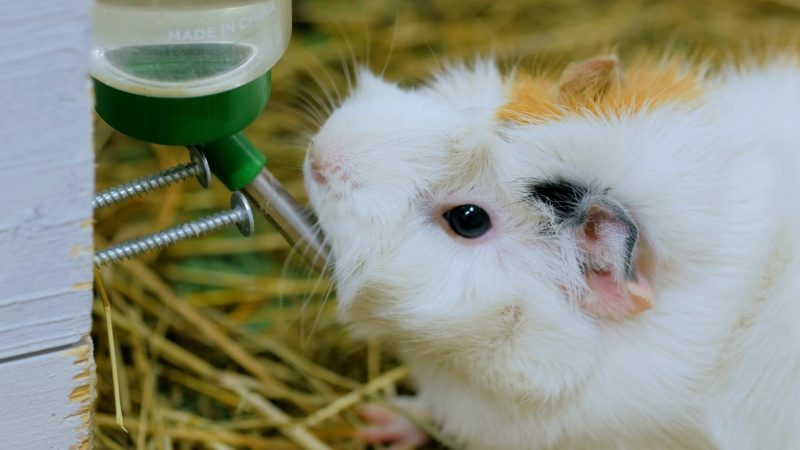
The most popular technique of providing water to a guinea pig is through drink bottles. They’re clipped on the outside of the cage, and there’s a little pipe at the end that’s shortened. To prevent leaking, a tiny ball is placed within the pipe.
Sippy Bottle
For cavies, the sippy bottle is more user-friendly than the drink bottle. This bottle has a little gib in the closed-hole that cavies must elevate slightly to keep the water flowing. Easy to use, thus it is preferred by the majority of cavies.
Bowl
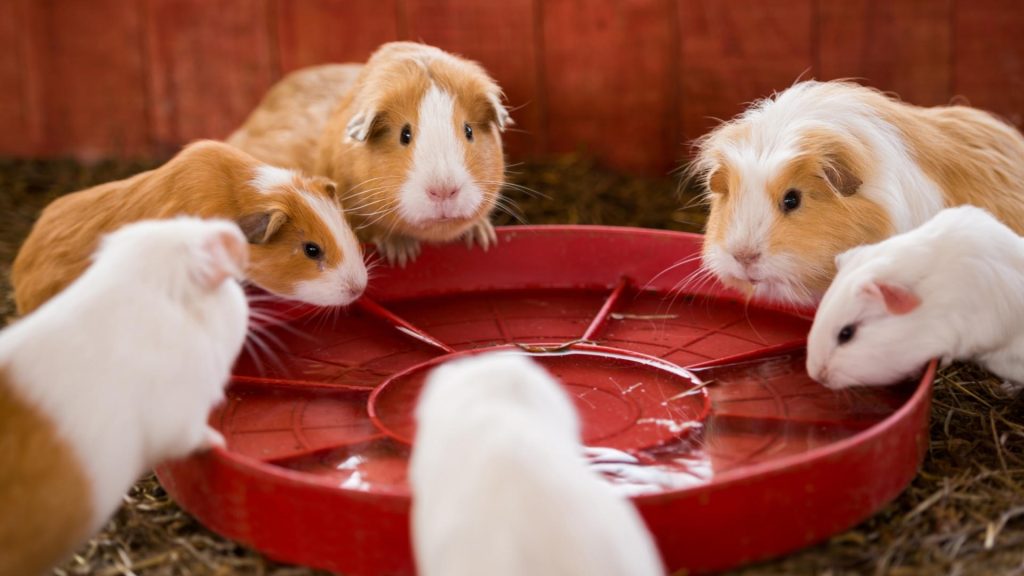
Despite the fact that drinking from a bowl is the most normal drinking manner for cavies, they appear to dislike it. Bowls are not the most sanitary option since dirt and dust might fall into the water, endangering your pet’s health.
They can also be spilled or knocked over while you are away, which might be a problem. The majority of them will need to be taught to drink from their bowl, although many will become used to it over time.
Summary
Guinea pigs can drink any kind of water, but it should be clean addition-free water. This means that adding sugar or any kind of supplement to your water is not good, in most cases. As for the tap water, it’s perfectly safe for your guinea pig, as long as it’s safe for you.
You should always avoid giving your guinea pig water that you don’t want to drink. Water that’s dangerous to humans is also dangerous to them, and that’s something that you should remember.
The important thing is to avoid giving your guinea pig anything other than water and food that’s good for this type of animal. Guinea pigs’ best nutrition consists of lots of greens and lots of freshwaters. This combination will ensure that the animal lives a long and healthy life.
